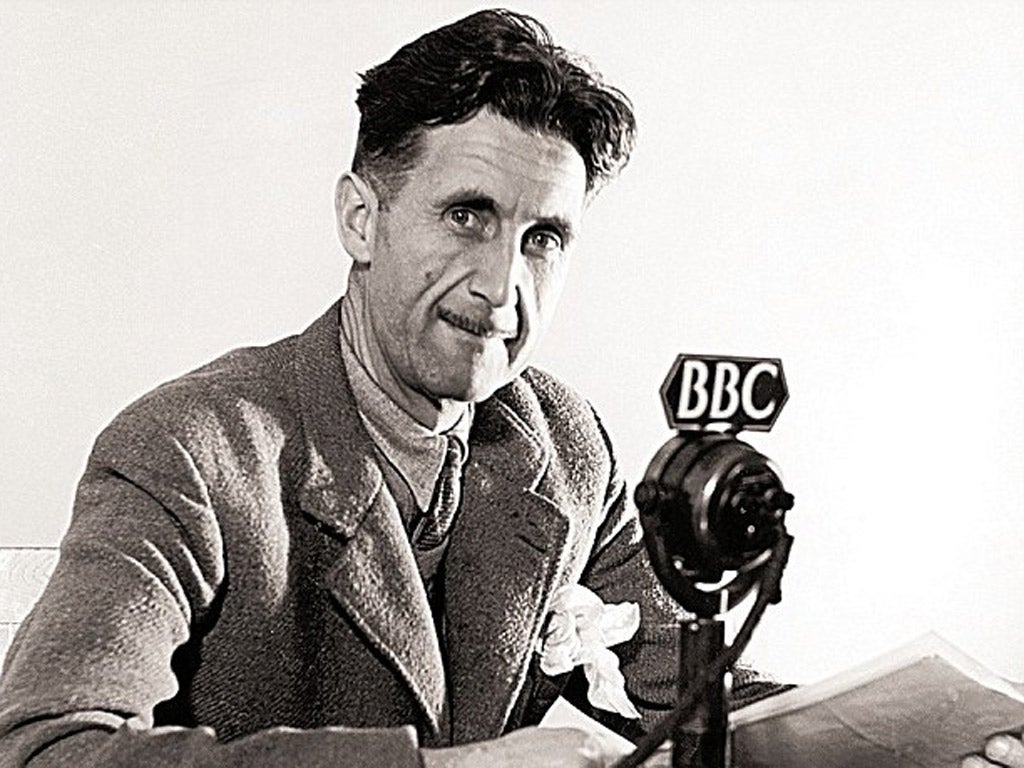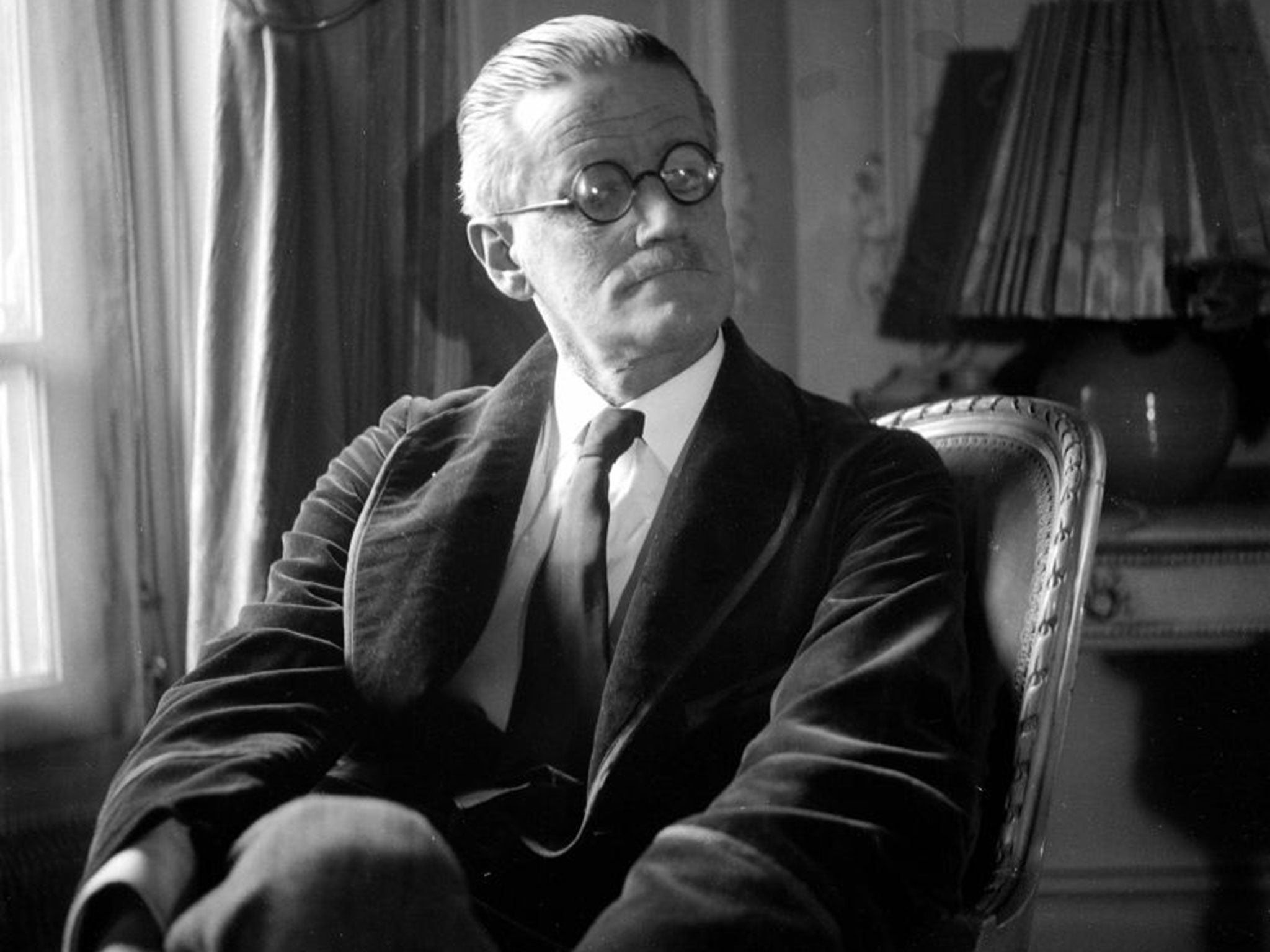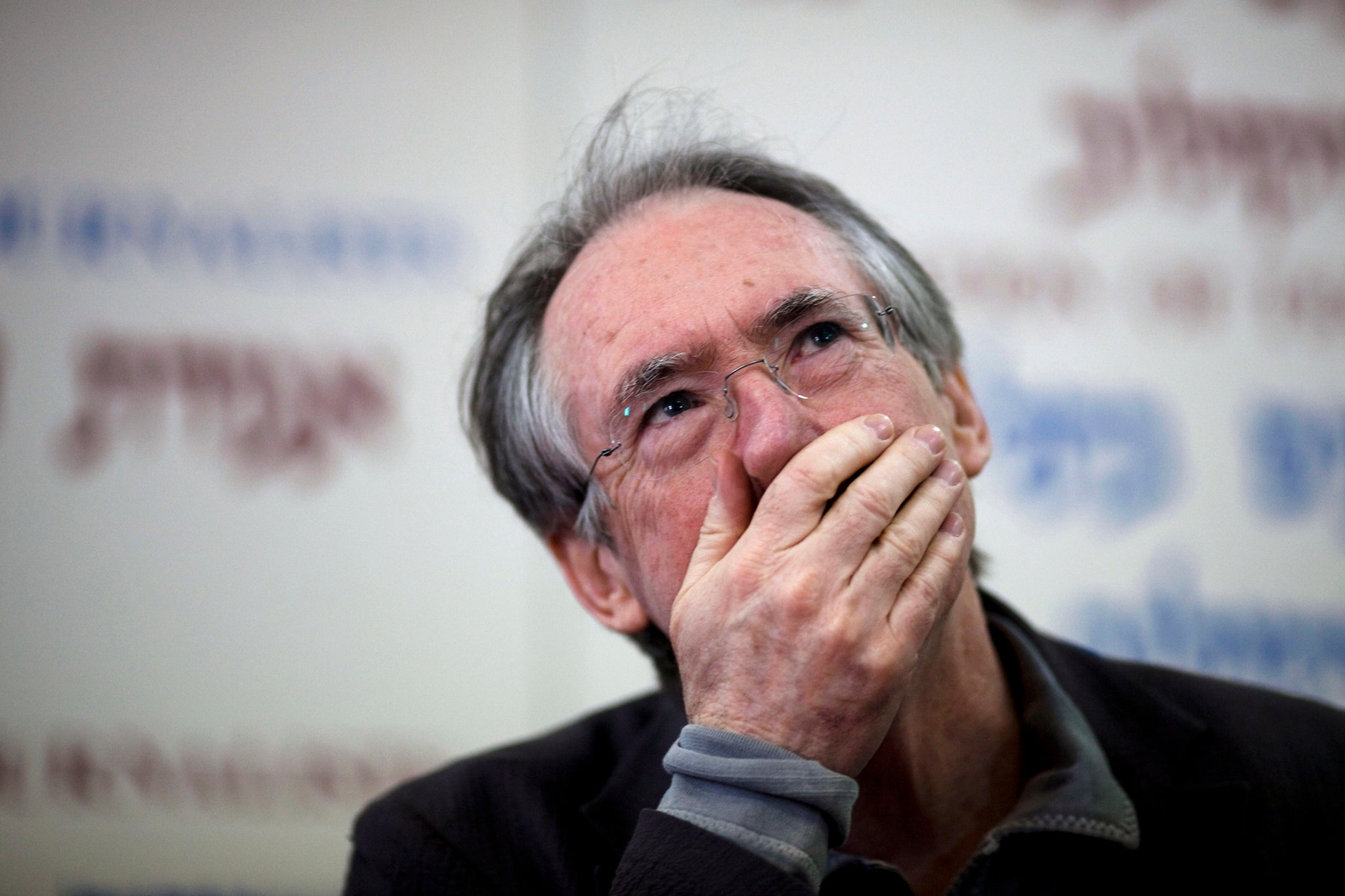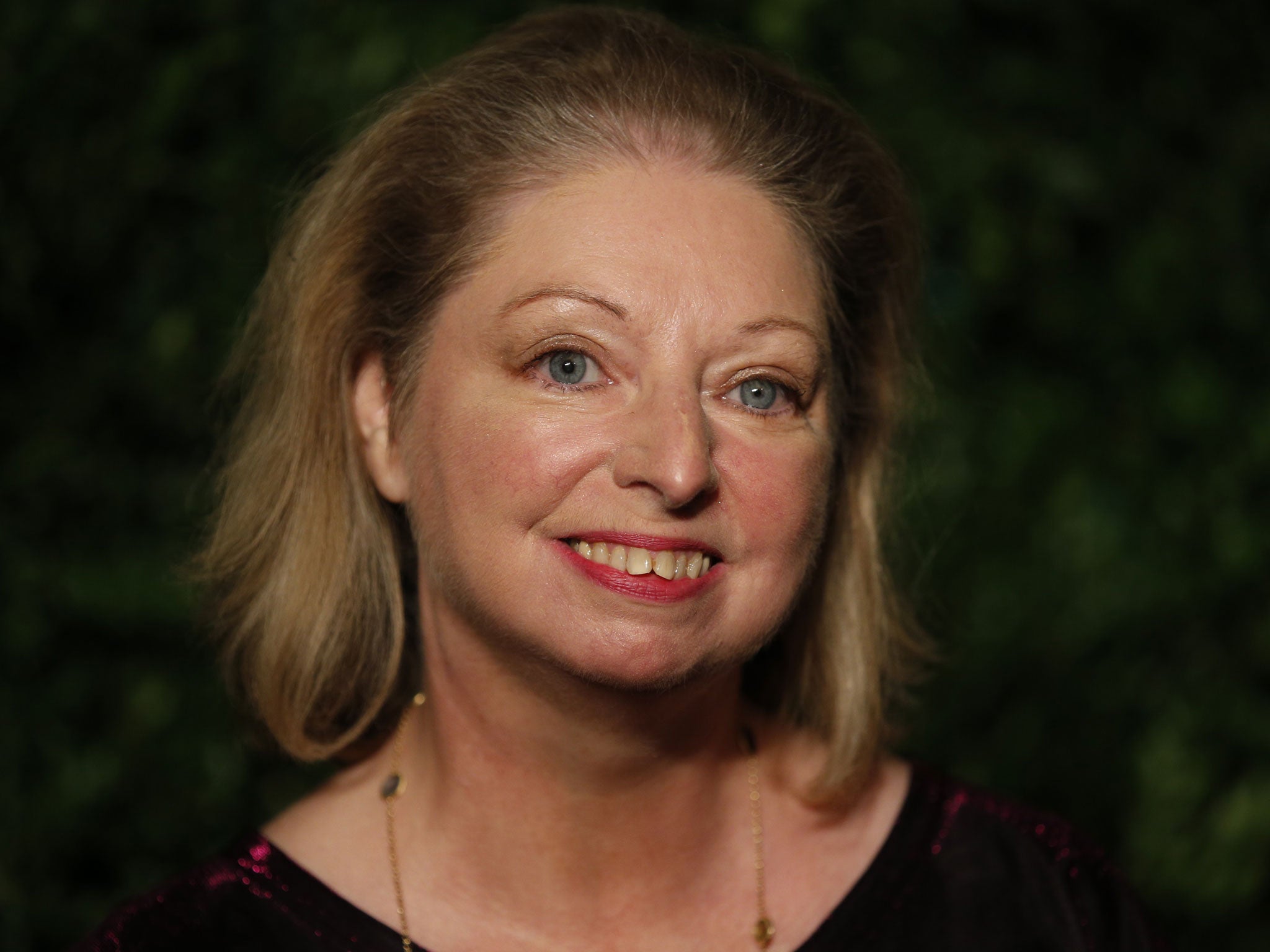George Orwell, James Joyce and short fiction's place in the world of literature
When rewards are so negligible and publishers so unenthusiastic, why do authors even bother to write short stories at all?

As a writer preparing to unleash a collection of short stories onto the bookshop shelves, I read last week’s Spectator piece by the novelist Philip Hensher with more than usual interest.
The Hensher thesis was that the success of a literary form previously borne up to Mount Parnassus by such willing sherpas as Joyce, Lawrence and Borges must be tumbling down when scarcely a literary magazine exists on this side of the Atlantic prepared to print examples of it. All this prompted one or two sobering questions about my own darling work in the field; most obviously, why, when the rewards are so negligible and publishers so unenthusiastic, even bother at all?

The answer, curiously enough, is that, first, someone asked me – in this case an enterprising small firm called Galley Beggar Press – and second, as most writers will probably end up conceding, there is a pleasure to be gained from short fiction that a full-length novel or a 100,000-word memoir sometimes struggles to provide. Even if you find yourself writing for love rather than gold and to please yourself rather than a commercially minded publisher who, when presented with a scheme for a short story collection, mutters rather sniffily – this happened to a distinguished novelist friend of mine – that “I suppose we could do it as an ebook”.
On the other hand, Mr Hensher is bang right about a genre’s popularity and prestige being connected to the opportunities available to people who want to specialise in it. So what are the markets open to the modern short-story writer who aspires to reach an audience beyond the popular women’s magazines? Well, you can post anything you like on an internet site, with no guarantee that anyone will read it or that you will end up getting paid for it.
And there is BBC Radio 4, which broadcasts one each afternoon at 3.45pm but enjoins a word count of 2,000 words, which some of us find the tiniest bit limiting (one of the joys of having a collection at your disposal is that you can write at any length you choose). Beyond this, though, the aspirant is reduced to the very few newspapers which print short stories in their weekend supplements – meaning a strictly enforced word total again – or a handful of small-circulation, literary magazines.
To balance this equation is the fact that the short story’s popularity has always ebbed and flowed according to peculiar aesthetics and economic codes that even book-trade insiders and cultural commentators have rarely been able to crack. Clearly, the mid-to-late 19th century golden age derived not only from the emergence of a newly literate reading public bred by Victorian school reforms but also from the enthusiasm of heavyweight performers such as Dickens, George Eliot and Trollope who liked experimenting with the form. But a century later it had become possible for up-and-coming writers such as Ian McEwan, Graham Swift and William Boyd to make their reputations with short fiction before going on to conquer the heights of the novel. McEwan’s first two books, First Love, Last Rites (1975) and In Between the Sheets (1978) were story collections, rounding up his contributions to the little magazines of the Wilson era.

And as that list of A-grade exponents serves to demonstrate, there is no generally accepted aesthetic template for short fiction. One of the short story’s great merits, consequently, is its apparent ability to operate according to its own laws and to exist at one remove from mainstream literature – to the point where it is sometimes difficult to establish exactly what a short story is.
Length is never an infallible guide: some of Thackeray’s adventures in the genre weigh in at more than 30,000 words; Donald Barthelme could wind up after a few hundred. What’s more, short stories come in all sorts and conditions, from Chekhovian conjurings-up of “atmosphere” to Roald Dahl-esque “Tales of the Unexpected” (which, as someone once pointed out, are in fact entirely predictable as the reader knows the twist is coming), from Jack London’s savage accounts of natural law in operation to sophisticated, Maugham-esque strokes of final-paragraph irony.
Maugham’s “The Verger” (1936) might be taken as a pattern example of how the conventional English story works its effect. The factotum of a genteel, west London church is dismissed on grounds of illiteracy. He then builds up a chain of tobacconists’ shops and makes a small fortune. A friendly bank manager, discovering his secret, wonders what he would have done, had he been able to read and write. “I’d have been the verger of St Peter’s, Neville Square,” our hero diffidently replies.
But the varieties of the story go well beyond this. Some of the great Victorians specialised in novels in miniature (Thackeray’s “A Little Dinner at Timminses”, 1848, which details the miseries inflicted on an easy-going barrister after his tuft-hunting wife determines they shall give a dinner-party for their friends, looks as if it could have developed into Vanity Fair Part II). At the other end of the scale, some of James Kelman’s best work is no more than a fragment or two of enigmatic monologue in which the motivation of the characters involved can only be guessed at.
Julian Maclaren-Ross’s superlative army stories (see The Stuff to Give the Troops, 1944) are sometimes straightforward reportage. Still, William Boyd, himself a master of the art (“On the Yankee Station”, 1981) once spent a 20-page essay trying to separate out the various compartments into which the short story can be divided. It is a brave attempt, certainly, but the reader who has just made his or her way through a representative anthology, marvelling at the number of variant forms, may think his conclusions sadly inexact.
Why, then, is there so little demand for them at present? One explanation is the fact that short stories en masse – say a dozen to the volume – start to lose their allure once the reader has established how the writer works his or her tricks (going through my own collection, Wrote for Luck, for example, I was interested to find that the unpleasant male characters tended to be called Hugo). Another, put forward by George Orwell, is sheer mental laziness, the difficulty of getting used to new sets of characters every 20 pages or so. Many readers, he wrote in his essay “Bookshop Memories”, “like to ‘get into’ a novel which demands no further thought after the first chapter.”
On the other hand, he believed that, on balance, writers were more to blame than readers, that most “modern short stories” – this was the mid-1930s – were “utterly lifeless and worthless”, while “short stories that are stories” – the exemplar here is D H Lawrence – were deservedly popular. Orwell’s distinction between stories that “are stories” – that is, have some life of their own – and a great mass of what can presumably be filed as formulaic stodge is a significant one, for the inter-war era was a time, possibly the last time in British literary history, when it was possible to make a living out of the genre.
There were six London evening newspapers in the 1920s, all of which printed short stories: as Evelyn Waugh’s older brother Alec once remarked, a story had to be either very bad or very good (ie hopelessly highbrow) not to secure a home. If, here in the 21st century, the problem is that there are not enough outlets for short-story writers, the difficulty 80 years ago was that there were probably too many, that too many practitioners wrote to a formula, and that giants of the trade, such as Maugham, had too many imitators.
Naturally, the short story has an intimate relation to the novel, from which numbers of its techniques derive, but this too can contribute to the air of suspicion with which it is sometimes regarded. Kingsley Amis, whose leavings may be examined in his Complete Stories (2011), once maintained that stories are “chips from the novelist’s work-bench” – that is, discarded fragments from works in progress, bright ideas that for some reason were never properly developed.
The more-demanding type of reader is likely to feel slightly short-changed by this definition, and to want something that exists in its own right rather than appearing to consist of bits of rubble splintered from the rock-face. The fundamental difference between the two forms seems to be proven by the fact that not all novelists find it easy to write short stories, whereas quite a few short-story writers are flummoxed by a length beyond 50 pages. Oddly enough, my two favourite modern American short-story writers – Mary Gaitskell and the late Peter Taylor – both double up as novelists, but you have a hunch that informed judges will probably remember them for their shorter work.

Alas, then, that the age-old critical focus on the novel as literature’s highest creative point tends to deflect attention from writers whose greatest achievements have come to rest somewhere below 5,000 words. One of the greatest-ever Victorian exponents of the form, for example, was the Norfolk farmer’s wife, Mary Mann, whose razor-sharp accounts of the agricultural depression that affected the eastern counties in the 1890s can be found in her Tales of Dulditch. Mann (1848-1929) was also a prolific novelist, but the novels, written to appease the sensibilities of the late-Victorian reading public, are much less appealing to a modern audience, and the chances of her appearing as a Penguin Modern Classic are correspondingly slim.
No doubt Hilary Mantel has made a small fortune out of her collection, The Assassination of Margaret Thatcher, but why should any contemporary writer sit down to plan a short story in an almost non-existent market with – unless your natural home is The New Yorker – inflexible prescriptions about length? The answer is that nothing is more fun and at the same time more of a challenge than what is, essentially, an exercise in form, where every sentence has to assist the forward march of the narrative, where there is no room for padding and any lapse into superfluity ends up on the cutting-room floor.
The difference between a novel and the short story is the difference between indulgence and compression, between the panoramic vision and the sideways glance. “Brevis esse, obscure fio,” Horace once remarked (“I try to be brief but become obscure”). However, brevity has its own satisfactions, and one of the distinctions of the great masters of the genre – from Kafka to Coppard, or Maclaren-Ross to Cheever – is their ability to fashion a world in a scattering of pages. Landscape painting is all very well, but you can get just as much satisfaction from a miniaturist.
D.J. Taylor’s new collection of short stories, “Wrote for Luck”, is published on 22 January by Galley Beggar Press
Join our commenting forum
Join thought-provoking conversations, follow other Independent readers and see their replies
Comments
Bookmark popover
Removed from bookmarks